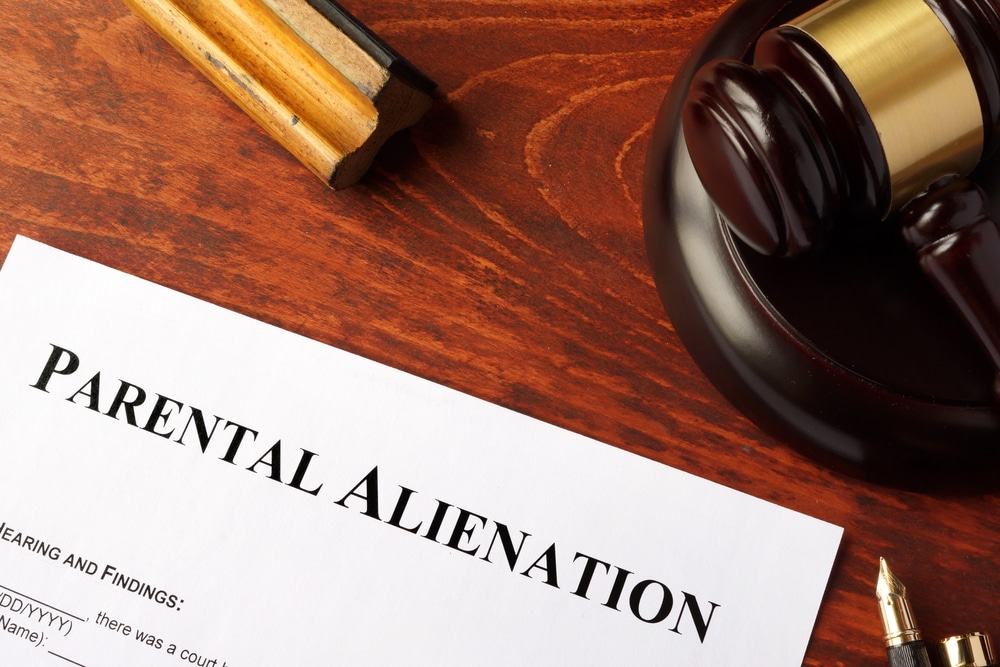Table of Contents
If you’ve landed on this article, you’re likely a concerned parent wondering if you should get CPS (Child Protective Services) involved because you suspect the other parent is alienating your child from you.
I feel you. As someone who’s been through a difficult split with my co-parent, I know firsthand how painful parental alienation can be. Your ex is turning your sweet son or daughter against you, and you just want your child back. You want to stop the brainwashing and manipulation.
Calling CPS might seem like the perfect solution to stop the parental alienation in its tracks. But is it really that simple? Will getting CPS involved help resolve the situation or just make matters worse?
This comprehensive guide will walk you through everything you need to know before picking up the phone, from understanding parental alienation to weighing the pros and cons of contacting CPS. Let’s start by explaining exactly what parental alienation is.
What is Parental Alienation?
Parental alienation is when one parent deliberately tries to damage or destroy the relationship between a child and their other parent. This often happens during hostile separations and custody disputes.
The alienating parent uses various tactics to turn the child against the targeted parent, including:
- Badmouthing the other parent – Insulting, criticizing, and saying negative things about the other parent constantly.
- Limiting or stopping contact – Blocking access and visits with the other parent by refusing to comply with custody arrangements.
- Manipulating and bribing the child – Making the child choose sides through threats, rewards, guilt trips, etc.
- Spreading lies – Fabricating false allegations of abuse or trying to convince the child the other parent is dangerous.
Research shows around 22 million American parents experience some form of parental alienation. It’s a disturbing phenomenon that can have lifelong consequences for the child’s emotional well-being and relationships.
Alienation is different than normal estrangement between a child and parent. With true estrangement, the child has usually been abused, neglected, or deeply hurt by the parent. With alienation, it’s the toxic influence of the alienating parent that causes the child to reject the targeted parent, often abruptly.
Signs of Parental Alienation
So how do you know if your child is truly being alienated rather than just expressing their own feelings? Here are some telltale signs:
- They suddenly become hostile, defiant, or withdrawn around the targeted parent.
- They mimic the alienating parent’s language and views, like calling you names or making false accusations about you.
- They refuse contact with you for trivial or vague reasons.
- They act like a different child around the alienating parent, becoming cold, distant, and untrusting of you.
- They deny past positive experiences with you and act as if you were never a caring, loving parent.
If you see a combination of these behaviors, don’t ignore them. The sooner you recognize parental alienation, the better chance you have of addressing it before the damage is done.
Why Parental Alienation is Dangerous for Children
The brainwashing tactics of an alienating parent can seriously harm a child’s emotional and psychological well-being. Effects may include:
- Loss of identity – Not knowing what to believe anymore about their family.
- Emotional trauma – Feeling torn between parents, betrayed, or forced to “take sides.”
- Depression and anxiety – Isolation from a loving parent takes its toll.
- Trust issues – Hard time trusting and relating to others.
- Damaged future relationships – Fear of intimacy, lack of role models for love.
- Behavioral problems – Acting out, poor performance at school, self-destructive habits.
Left unresolved, parental alienation can have lifelong consequences for the child. It may even escalate into parental alienation syndrome, where the child completely rejects and severs ties with the alienated parent.
When Should You Call CPS for Parental Alienation?
CPS is responsible for investigating claims of emotional abuse, neglect, and other threats to a child’s wellbeing. But should you get them involved in potential parental alienation cases?
If you have evidence of severe emotional abuse resulting from alienation, it may be appropriate to contact CPS. Signs justifying a call include:
- Your child is terrified, withdrawn, or exhibiting trauma symptoms
- The alienating parent has made repeated false allegations against you
- Your child has become violent, disruptive, or self-destructive
- The alienating parent is preventing all contact in violation of custody orders
However, every situation is unique. Speak to a lawyer first to understand if calling CPS is advisable or may do more harm than good. Tread carefully.
What Happens When CPS Investigates Parental Alienation Claims?
If you report concerns of emotional abuse from parental alienation, here’s what happens:
- A CPS worker will contact you and the other parent for initial interviews.
- They’ll speak to witnesses like teachers, doctors, therapists, or family members to look for signs of alienation.
- If needed, the child will also be interviewed by a trained professional.
- The CPS team evaluates the evidence and determines if any intervention is warranted.
- If emotional abuse is present, they may recommend counseling, parenting classes, or changes to the custody order.
- As a last resort, CPS can remove the child from the alienating parent’s home if the situation is deemed unsafe. The child may be placed in foster care while the court intervenes.
While CPS will take your concerns seriously, keep in mind their resources are limited. Parental alienation cases are complex, so they may not be able to fully resolve the custody issues – that’s for family court to decide.
The Drawbacks of Calling CPS for Parental Alienation
Before dialing CPS, it’s important to consider the potential downsides:
- CPS may not see your situation as severe enough to get involved. The burden of proof is on you.
- The investigation process can seem invasive and traumatizing for the child.
- There are no guarantees CPS can repair the damaged relationship with your child.
- Each case is different – CPS workers use their own discretion and judgment.
- If your allegations are ultimately unfounded, it may damage your credibility and custody rights.
- Bureaucratic delays and constantly changing case workers can cause frustration.
Take these risks into account before subjecting your child and family to the scrutiny of a CPS investigation. In many cases, there may be better alternatives.
Alternatives to Calling CPS for Parental Alienation
While CPS should remain an option for serious cases, you may want to explore other resources first:
Talk to the other parent – Attempt calmly explaining how the alienation is hurting your child. With mutual effort, you may be able to work together to stop it.
Mediation – A neutral third-party mediator can facilitate productive communication and co-parenting.
Support groups – Connecting with other alienated parents provides validation and coping strategies.
Your child’s school/doctor – Authority figures in your child’s life can identify emotional abuse and help counteract it.
Family counseling – Joint and individual therapy can unpack the family dynamics causing the alienation.
Legal action – File for emergency custody or enforcement if the other parent violates your rights.
Parenting education – Classes on co-parenting and high-conflict separations may provide useful tools.
With some combination of resources, you may get better results than relying solely on CPS intervention.
How to Protect Your Child from Parental Alienation
Regardless of whether you involve CPS, make your child the #1 priority:
- Put your child’s emotional well-being first, not “winning” against your ex.
- Remain calm and neutral when discussing your ex in front of your child.
- Validate your child’s feelings without judgment or trying to change their mind.
- Seek individual counseling to process your own hurt and anger.
- Thoroughly document all interactions and alienating behaviors by the other parent.
- Focus on quality time with your child, creating new positive memories together.
- Gently remind your child of happy times you shared together.
With emotional maturity and self-care, you can mitigate the damage of alienation and continue supporting your child through this difficult situation.
Dealing with possible parental alienation is painful, but contacting CPS could make it worse if you’re not fully prepared. Speak to legal and mental health professionals to understand your options. Always put your child first. With determination and support, many alienated parents do eventually reconnect with their kids.
I hope this guide gave you a balanced perspective on the complex dynamics at play. Stay strong, keep fighting for your child, and know there are resources out there to get you through this. Despite what your ex may be poisoning your child to believe, you are a loving parent. With time and care, your child will see that truth.

